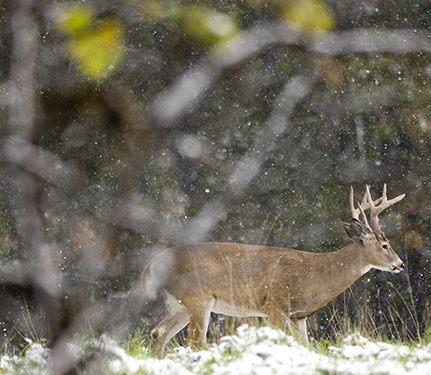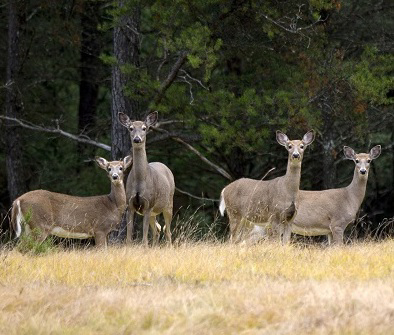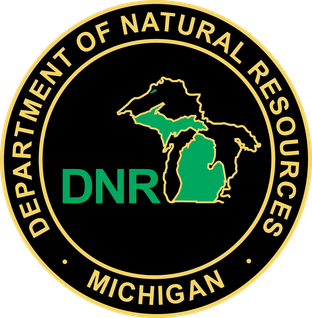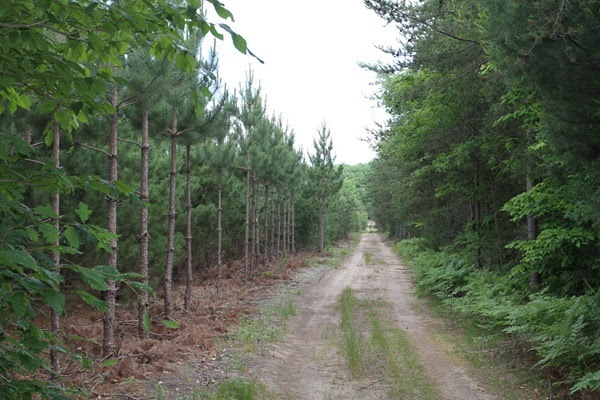Everything You Need to Know About Testing Your Michigan Deer for CWD This Year
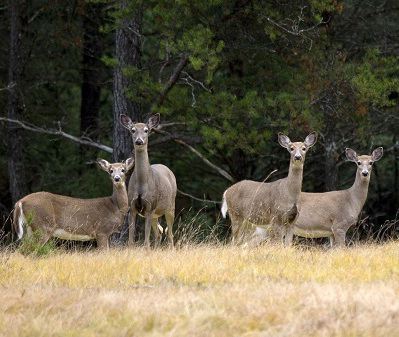
CWD testing in northern Lower and Upper peninsulas
This year, chronic wasting disease testing will still be focused in some areas of the northern Lower Peninsula as well as the Upper Peninsula. The counties for CWD testing in 2024 include Antrim, Arenac, Baraga, Benzie, Cheboygan, Chippewa, Clare, Dickinson, Gladwin, Grand Traverse, Houghton, Iosco, Kalkaska, Keweenaw, Leelanau, Luce, Mackinac, Manistee, Ogemaw, Ontonagon, Otsego and Schoolcraft.
In these counties, a variety of sites will be popping up, with at least one of the following depending on the county: drop boxes, staffed submission sites, and partner processors and taxidermists to assist with collection efforts. To find out about available sites near where you hunt, see the CWD testing page.
Historically, testing occurred in and around areas where CWD has been detected to date.
Starting in 2021, the DNR began a rotational approach to testing for CWD around the state. With this approach, a group of counties is selected each year, with a desire to eventually test sufficient numbers of deer in every county across the state. This has led to detection of CWD in 13 of Michigan’s 83 counties, with Ogemaw being the latest in the fall of 2023.
The goal of this approach is early disease detection, as management has the potential to be most effective when the disease is caught early. Most of these areas have not had a CWD detection or have not previously been part of intensive testing efforts, so little is known about disease status in these locations. To date, the Michigan Department of Natural Resources has collected enough baseline information in 61 of the state’s 83 counties and is conducting surveillance in the remaining 22 counites to meet the baseline information needs in these areas.
For more on where CWD has been found, see the County-level CWD detection information page.
CWD testing overview
CWD is a serious neurological disease affecting deer, and testing your harvested deer is crucial for monitoring and managing its spread. Testing options currently available in 2024 include:
- Testing locations: The DNR offers various submission sites in the northern Lower Peninsula and Upper Peninsula counties that are part of the 2024 rotational testing. Hunters can find a list of submission locations on the DNR website.
- Self-sample kits: For your convenience, self- sample submission kits are available for hunters in certain counties where DNR submission is not available. The kits come with instructions and supplies to collect samples and free overnight shipping to the diagnostic testing laboratory. Results are emailed directly to the submitter. Kits are available in the following counties: Clinton, Eaton, Gogebic, Gratiot, Hillsdale, Ingham, Ionia, Iron, Isabella, Jackson, Kent, Menominee, Midland and Montcalm. Kits can be picked up from the locations listed on the CWD testing page. Hunters should call the office prior to arriving to ensure someone will be available to assist.
- Sample testing for a fee: Deer harvested in counties that are not eligible for free CWD testing can be submitted through one of the following participating USDA-approved laboratories for a fee. Results from deer submitted to an approved USDA laboratory using testing for a fee will be sent directly to the hunter from the laboratory.
- Instructions to submit samples to the Michigan State University Diagnostic Laboratory.
- Instructions to submit samples to the Wisconsin Veterinary Diagnostic Laboratory.
Whichever testing option is right for you, make sure to follow the submission guidelines carefully to ensure your sample is processed correctly. For detailed information on testing procedures and locations, please visit the DNR CWD testing page.
CWD regulations and best practices
Carcass transportation: Deer harvested outside of Michigan and deer harvested in Montcalm County in its entirety; Otisco, Orleans, Ronald or North Plains townships in Ionia County; or Nelson, Spencer, Courtland, Oakfield, Grattan or Cannon townships in Kent County cannot be possessed or transported outside of those listed areas, unless:
- The harvested deer is deboned meat, quarters or other parts of a cervid that do not have any part of the spinal column or head attached, antlers, antlers attached to a skull or skull cap cleaned of all brain and muscle tissue, hides, upper canine teeth, or a finished taxidermist mount OR
- The deer carcass is taken directly to a registered processor; AND/OR
- The intact deer head detached from the carcass is taken directly to a licensed taxidermist.
Carcass disposal: Proper disposal of deer carcasses is vital. Dispose of carcasses in designated landfills or bury the carcass several feet underground.
Testing is voluntary: In areas of the state that are part of the 2024 rotational counties in the northern Lower Peninsula and Upper Peninsula, testing is highly encouraged to meet goals and stay proactive in early detection, but it is not required anywhere in the state. In every case, testing is voluntary and not a legal requirement.
Reporting: If you observe a deer exhibiting signs of illness, report it to the DNR. Your observations can aid in monitoring and managing CWD in our deer population. You can report a sick deer online.
Thank you for your cooperation and commitment to protecting Michigan’s wildlife


